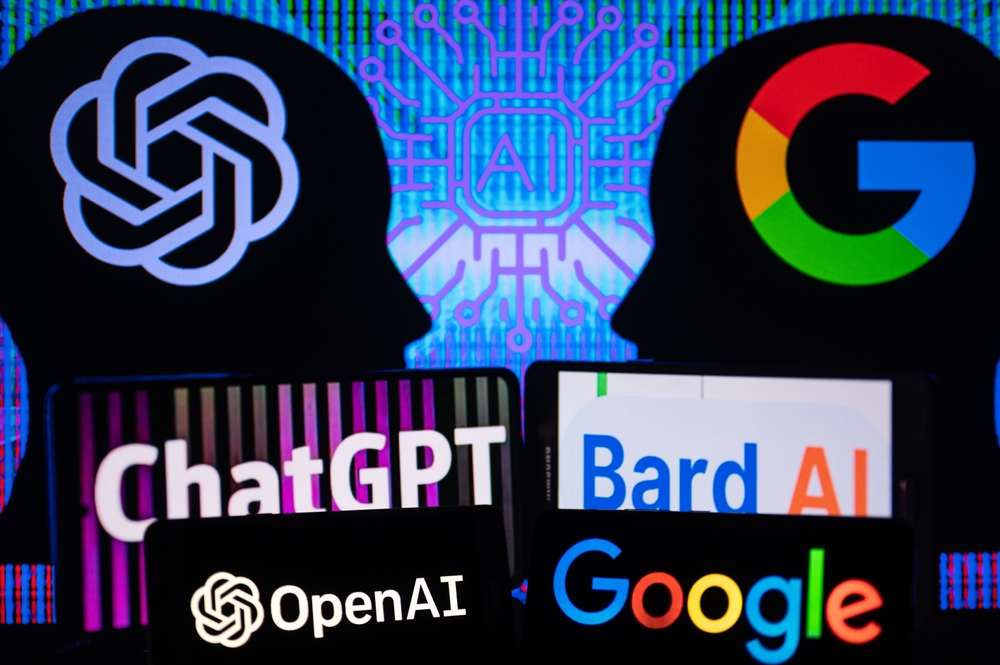Artificial intelligence (AI) is set to experience a supremacy battle as Google’s chatbot Bard expands in Brazil and Europe to wrestle Microsoft-backed ChatGPT. With Alphabet rolling out, Bard in the two markets is bound to reignite the tech rivalry, with Thursday’s July 13 expansion considered the biggest since the February launch.
Bard Expanding as Tech Companies Allocate Billions Towards AI Startups
Bard replicates OpenAI’s ChatGPT design as a human-sounding program leveraging generative AI to establish conversations with the user through responding to prompts. Google’s decision to pursue the European and Brazilian markets is unsurprising, given the global excitement triggered by the generative AI chatbots.
Bard’s entry into the European market coincides with companies and investment veterans embracing the AI bandwagon by committing billions. The global race portrayed by tech companies arises from attempts to avoid missing out on the AI potential to yield cloud and advertising revenue.
Bard to Accommodate Diverse Languages
Google revealed that Bard would integrate new features from the version unveiled in February. The senior product executive Jack Krawczyk indicated that Bard is available in 40 languages, including Spanish, Chinese, Hindi, German and Arabic, to make the product applicable worldwide.
Krawczyk indicated that the capability to listen to something loud could enable one to approach the idea differently. Doing so is helpful if one desires to capture the correct pronunciation or when listening to scripts and poems.
Krawczyk admitted that the new features will allow Bard users to adjust the tone and style of responses to casual, professional, short, simple and long versions. Also, users can pin and rename the conversations. Users can utilize images in prompts and guarantee interoperability of exporting code to other places.
Updated Bard Version Allowing Users Customize Responses
The expansion of Bard within the EU encountered delay following the concerns raised by the local privacy regulators. Krawczyk clarified that the Google team met with the regulators in sessions, reassuring them Bard would guarantee choice, user control and transparency.
Amar Subramanya, the Bard’s vice president, reiterated that users can consider opting out of the data collection. He declined the inquiry of whether Google would develop a Bard application. Instead, he illustrated that Bard involves an experiment backed by bold and responsible experts.
Google is battling a new class action alleging it misused personal information in training AI systems in the US. The emergence of class actions may slow the pace release of AI models. Also, novelty is waning with a recent review of monthly traffic to the ChatGPT declined in June.
Musk Unveils xAI to Challenge Bard and Bing AI
Bard’s entry into Brazil and Europe comes hours after Tesla chief executive Elon Musk introduced AI startup xAI. The US billionaire who owns Twitter and heads the rocket launch company SpaceX revealed in the Twitter Spaces event on Wednesday, July 12, plans to build safer AI.
Musk restated that xAI would prioritize the creation of maximally curious and not bulldoze explicit programming of morality into the AI. He has occasionally urged pause to develop superior AI models besides challenging legislators to regulate the sector. Musk has in the past voiced concerns lamenting that AI has the potential to cause civilizational destruction.
A review of state filing indicates that Musk registered X.AI Corp within Nevada in March, identifying him as a sole director while Jared Birchall occupied the secretary role.
Will Musk’s XAI Corp Deliver the AI Safety Standpoint?
Musk would in April state he plans to introduce TruthGPT being a model oriented to optimize truth-seeking models. He indicated that the product would rival Bing AI of Microsoft and Google’s Bard by prioritizing understanding universe nature. Musk considers that the best attempt to understand the truth of the universe is developing an AI safety standpoint.
Musk is leveraging the input of former engineers at OpenAI, Microsoft and Google to deliver the pro-humanity model. The xAI team features Igor Babuschkin, Christian Szegedy and Tony Wu, who previously worked at Google and Greg Yang from Microsoft.
Editorial credit: JRdes / Shutterstock.com
